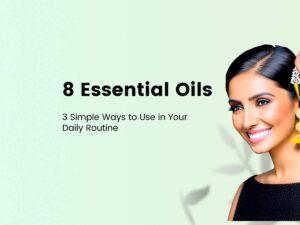Aromatherapy Safety and Personalization – Your Ultimate Q&A Guide
Discover the art of safe and personalized aromatherapy with our comprehensive Q&A guide. Uncover essential oil precautions, mitigate adverse effects, and explore oils for specific needs.
Aromatherapy has gained immense popularity as a natural approach to holistic well-being. As you embark on your journey with essential oils, it’s crucial to understand their safe usage and personalization. In this Q&A guide, I will address essential oil precautions, ways to mitigate adverse effects, and recommend oils tailored to specific needs. Let’s unlock the secrets of aromatherapy safety and personalization for a transformative and customized experience.


Essential Oil Precautions and Safety Measures
1. Do essential oils align with a holistic approach to healthy living?
Absolutely! Essential oils perfectly complement a holistic lifestyle, supporting physical, emotional, and spiritual wellness. Their natural properties promote balance and harmony, aligning perfectly with holistic principles.
2. What precautions should one take while using essential oils?
Safety is paramount when using essential oils. Always dilute oils with suitable carrier oils before topical application. Perform patch tests on a small area of skin to check for sensitivities. Additionally, some oils can cause photosensitivity, so avoid direct sunlight after application.
3. Can aromatherapy have adverse effects, and if so, how can one mitigate them?
While adverse effects are rare, improper usage can lead to skin irritation or sensitization. To mitigate such concerns, follow recommended dilution ratios and consult a certified aromatherapist or healthcare professional. Individual responses may vary, so always use essential oils cautiously.
4. Are aromatherapy diffusers suitable for pets?
Aromatherapy diffusers can be beneficial for humans, but some essential oils are toxic to pets. Always choose pet-safe oils and ensure proper ventilation when using diffusers around furry friends. Prioritize the safety and well-being of your pets during aromatherapy sessions.
5. Which essential oils cater to the unique requirements of individuals on the autism spectrum?
Individuals on the autism spectrum often benefit from calming and grounding oils. Lavender, vetiver, and frankincense are renowned for their soothing properties and can provide comfort and emotional support.
6. I seek a natural remedy for dandruff. Are there specific essential oils that can help?
Absolutely! Tea tree, peppermint, and rosemary essential oils possess powerful antifungal properties. When diluted in a carrier oil and applied to the scalp, they can effectively combat dandruff and promote a healthier scalp.
7. Could you recommend essential oils to address hair fall concerns?
Certainly! Cedarwood, tea tree, and rosemary essential oils are well-known for their ability to stimulate hair growth and strengthen hair follicles. These oils, when combined with a carrier oil and massaged into the scalp, can help reduce hair fall and promote healthier locks.
8. Share insights on essential oils renowned for promoting restful sleep.
To promote restful sleep, turn to the calming scents of lavender, chamomile, and ylang-ylang essential oils. These oils have sedative effects that can relax the mind and body, fostering a peaceful night’s sleep.
As you venture into the world of aromatherapy, prioritize safety and personalization. Embrace the unique benefits of each essential oil and tailor your choices to address specific needs. By adhering to precautions and understanding individual responses, you can confidently embrace the power of aromatherapy for a more balanced and enriched life.



